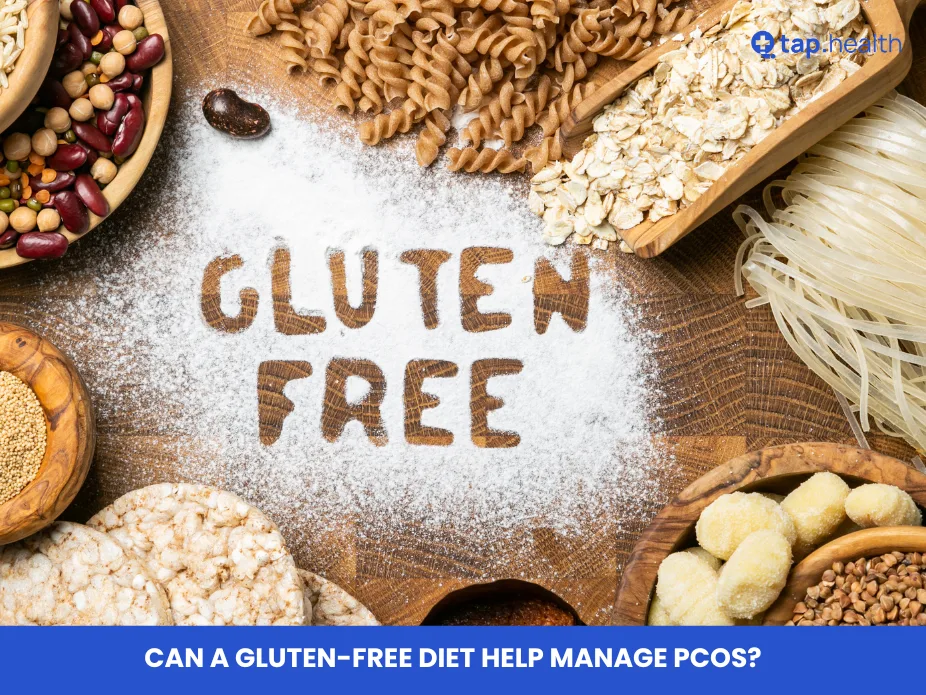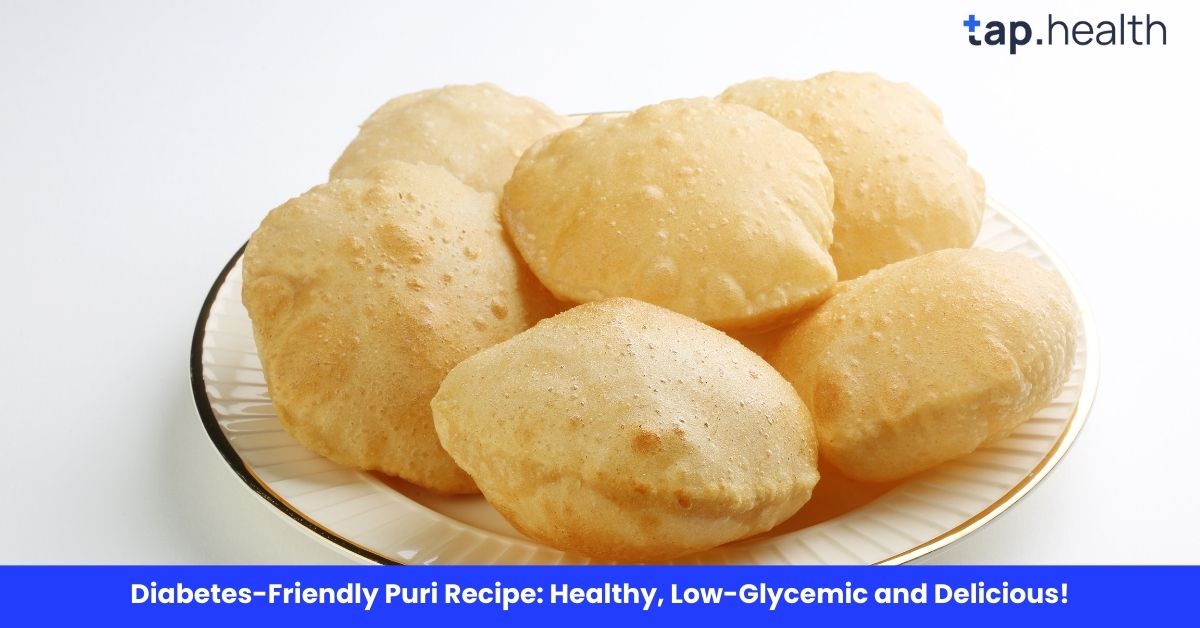Polycystic ovary syndrome (PCOS) affects 8–13% of women of reproductive age and brings irregular periods, hirsutism, acne, weight gain, and insulin resistance. While no cure exists, diet plays a major role in symptom control. In recent years, many women with PCOS have turned to a gluten-free diet for relief. But does removing gluten actually help PCOS management, or is it just a trend?
Understanding PCOS and Insulin Resistance Connection
PCOS is driven by elevated androgens and frequent insulin resistance. Up to 70% of women with PCOS have insulin resistance, which worsens weight gain, hormonal imbalance, and risk of type 2 diabetes. Controlling blood sugar and lowering chronic inflammation are the two biggest dietary targets for PCOS experts focus on.
How Gluten May Affect Inflammation and Hormones in PCOS
Gluten, a protein in wheat, barley, and rye, is harmless for most people. However, in individuals with non-celiac gluten sensitivity (NCGS) or undiagnosed celiac disease — both more common in women with PCOS — gluten can trigger systemic inflammation and intestinal permeability (“leaky gut”). This inflammation can worsen insulin resistance and androgen excess.
A 2018 study in the Journal of Nutritional Biochemistry showed gluten peptides can increase inflammatory markers (IL-6, TNF-α) even in non-celiac individuals. Reducing this inflammatory load may improve insulin sensitivity and hormone balance in sensitive PCOS patients.
Key Benefits of Going Gluten-Free for PCOS
- Lower Chronic Inflammation Removing gluten often reduces inflammatory cytokines, which helps ease acne, hirsutism, and menstrual irregularity linked to inflammation.
- Better Insulin Sensitivity and Blood Sugar Control Traditional gluten-containing foods (bread, pasta, pastries) are high-glycemic refined carbs. Replacing them with low-GI gluten-free options (quinoa, buckwheat, sweet potato) stabilizes blood sugar and reduces insulin spikes.
- Easier Weight Management and Less Bloating Many women report rapid reduction in abdominal bloating and water retention after eliminating gluten, making weight loss feel more achievable.
- Improved Gut Health and Hormone Regulation A healthier gut microbiome supports better estrogen metabolism and reduces androgen excess.
- Clearer Skin and Reduced Acne Several case reports and patient surveys show marked acne improvement within 8–12 weeks of going gluten-free, likely due to lower inflammation and dairy cross-reactivity reduction (many gluten-free eaters also cut dairy).
Best Gluten-Free Foods for PCOS Management
- Gluten-free whole grains: quinoa, brown rice, buckwheat, millet, certified gluten-free oats
- Non-starchy vegetables: spinach, kale, broccoli, zucchini, cauliflower
- Healthy fats: avocado, olive oil, nuts, seeds, fatty fish (rich in anti-inflammatory omega-3)
- Lean & plant proteins: eggs, chicken, turkey, wild fish, lentils, chickpeas, tofu
- Low-GI fruits: berries, apples, pears
Potential Pitfalls to Avoid
- Relying on processed gluten-free junk food (cookies, cakes, pizzas) — these are often higher in sugar and seed oils
- Nutrient shortfalls in iron, B-vitamins, and fiber if whole-food swaps aren’t made
- Higher grocery cost if buying branded gluten-free products instead of naturally gluten-free foods
What the Research Actually Says
Direct randomized controlled trials on gluten-free diet and PCOS are still limited. However:
- A 2021 pilot study (n=27) found women with PCOS and non-celiac gluten sensitivity who followed a gluten-free diet for 6 months had significantly lower fasting insulin, HOMA-IR, and androgen levels compared to controls.
- Larger studies on low-GI and anti-inflammatory diets (which often overlap with gluten-free) consistently show improvement in PCOS markers.
Bottom line: A gluten-free diet is not mandatory for every woman with PCOS, but it appears particularly helpful for those with gluten sensitivity, high inflammation, or stubborn insulin resistance.
Real-Life Results from Women with PCOS
- Sarah (29): Lost 18 lbs, regained regular cycles, and cleared hormonal acne after 3 months gluten-free + low dairy.
- Priya (34): Reduced fasting insulin from 24 to 11 μU/mL and finally ovulated naturally after adding gluten-free whole foods and exercise.
Practical Steps to Start Gluten-Free for PCOS
- Get tested for celiac disease and gluten sensitivity first.
- Remove all wheat, barley, rye, and hidden sources for at least 8–12 weeks.
- Focus 80% on naturally gluten-free whole foods, 20% on quality gluten-free products.
- Combine with strength training and adequate sleep for best hormonal results.
- Reassess symptoms after 3 months; if no change, gluten may not be your trigger.
Can Gluten-Free Diet Reverse Diabetes Risk in PCOS? (TapHealth)
Women with PCOS have 5–10 times higher lifetime risk of type 2 diabetes. By improving insulin sensitivity, reducing inflammation, and supporting sustainable weight loss, a well-planned gluten-free diet — especially when low-glycemic and anti-inflammatory — can significantly lower that risk dramatically. Pair it with regular movement and stress management for optimal protection against prediabetes and diabetes progression.
Final Verdict A gluten-free diet is not a magic bullet, but for many women with PCOS — especially those with bloating, acne, or suspected gluten sensitivity — it offers meaningful symptom relief and better metabolic health. Always work with your doctor or a PCOS-specialized dietitian before major dietary changes.



